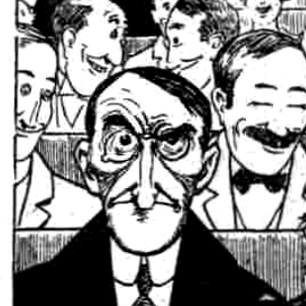There’s an Aztec city building game called Tlatoani. It’s in early access, but has enough meat on the bone that it’s one of my goto games.
Out of curiosity I checked Steam DB for active player numbers. I have discovered at any given point I am 10% to 25% of the given player base BY MYSELF. I am 1 of 4 people playing this game right now in the world. With the prevalence of the internet I always assume whatever weird bullshit you’re into there’s at least a thousand people talking about it; making memes outsiders could never comprehend. It’s actually novel to fly under the radar for once.
What do you do that doesn’t have a community associated with it?


How to use game design for education around political and social issues and complexity science
Edit since a few people asked: I don’t have good answers for this yet, but some thoughts:
There are probably plenty more links. I’ve been playing some of those games for years, but am still relatively new to some e.g. story games. And I’m just starting out looking in to game design…
edit 2: also, a plug for !complexity@lemmy.world
I want to know more. Part of my job involves teaching lessons on climate change in schools. I have often wondered how I could incorporate games like Minecraft into this.
Edited a bunch in. Would be interested in your Minecraft thoughts after reading that. I don’t immediately see that Minecraft specifically would be useful for climate change. I’m a climate scientist, but I haven’t played the game… There are a few other games out there that do tackle climate change, some in useful and interesting ways.
Edit: some of the games I know:
Please tell me more
Edited a bunch in
Thank you!
Have you played Citizen Sleeper? I think you might like it.
I haven’t. I’m less interested in videogames, because I find I prefer the social interactions of physical games more, and I also suspect that videogames fall into more of a one-to-many style communication, rather than many-to-many (I have played them a lot in the past, just not so much these days).
I had a quick skim of the wikipedia page, but it mostly seems pretty focused on the narrative (aside from the dice pool mechanic, which sounds a lot like Psi*Run dice mechanic discussed on this podcast). Was there something in particular about it that I’d be interested in?
Mostly the fact that it’s very class and socially conscious, and is using games as a way of teaching deeper truths. The mechanics aren’t super interesting, though they are solid. It is definitely a one-to-many thing, though
Oh yeah. I see that kind of teaching as fairly similar to what you would get from movies or books. Definitely useful, and with lots to explore (I want to write some SciFi eventually). But I think it’s fundamentally different to when the game structure teaches things.
Of course, there are table top games that have those elements too, though probably less than videogames, since they usually depend on the players creating the story on the fly.
Woah. That sounds interesting. Care to elaborate?
Edited a bunch in